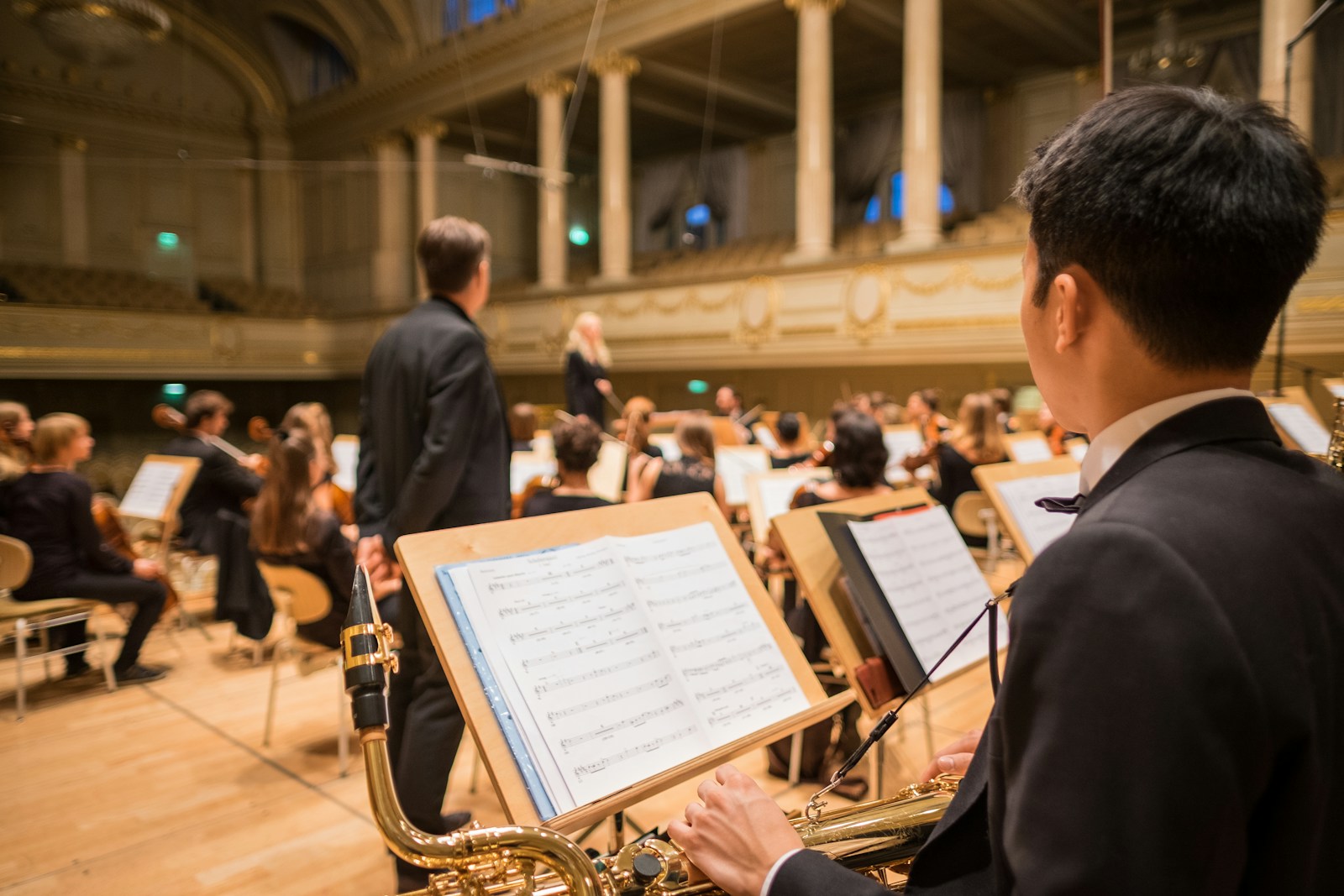Are you ready to embark on a melodious journey into the world of music research papers? As students, we often find ourselves pondering the question, “Can Academized.com write a research paper for me?”—seeking the guidance and support of reputable research paper writing services. In this article, we delve into the world of music research, uncovering the hidden sources of inspiration that can elevate your academic pursuits and ignite your passion for the subject.
Music research papers hold a special place in academia, offering a unique opportunity to explore the rich tapestry of sounds, rhythms, and melodies that have shaped our world. They provide a gateway to understanding the historical, cultural, and societal dimensions of music, inviting us to unravel the stories and influences that lie within each composition. Through meticulous research and analysis, music research papers allow us to delve deeper into the nuances of musical expressions, examine the impact of music on society, and appreciate the artistry of composers throughout history.
Within this article, we embark on a quest to uncover the sources of inspiration for music research papers. We will explore three main points that will guide us on this enchanting journey: exploring historical context, analyzing musical elements, and investigating the societal and cultural implications of music. So, dust off your headphones, grab your notebook, and prepare to be inspired as we delve into the world of music research. Let us uncover the hidden treasures that await us, ignite our passion for music, and equip ourselves with the tools to craft captivating and insightful research papers.
Exploring Historical Context: Unearthing Stories and Influences
Let’s embark on a thrilling expedition into the vast world of music research by delving into the importance of historical context. As we embark on this adventure, we’ll discover that understanding the historical backdrop of musical compositions and movements can unlock a treasure trove of stories and influences. Just as a seasoned explorer unearths hidden artifacts, we will uncover how historical events, cultural influences, and societal changes have shaped the melodies that resonate with us today.
When we teach assignment writing, we emphasize the significance of exploring historical context in music research papers. By immersing ourselves in the specific time periods, we gain insights into the stories that lie within each composition. From the Renaissance to the Romantic era, from Baroque to Blues, every musical genre and period has been intricately woven into the fabric of history. By examining the impact of composers, genres, and musical innovations, we unravel the rich tapestry of influences that have shaped the music we adore. As we journey through history, we discover how the political, social, and cultural climates of different eras have left an indelible mark on musical expressions. By understanding these influences, we gain a deeper appreciation for the compositions and uncover captivating research opportunities that allow us to delve into the past and connect it with the present.
So, grab your magnifying glass and let’s embark on a historical adventure. Unearth the stories and influences that lie within the melodies, and let the rich tapestry of historical context guide you in crafting insightful and captivating music research papers. Together, we will embark on a voyage through time, exploring the impact of composers, genres, and musical innovations, and uncovering the hidden treasures that await us in the annals of history.

Analyzing Musical Elements: Examining Structure, Harmony, and Rhythm
As we embark on our exploration of music research, we mustn’t overlook the significance of analyzing the musical elements that bring compositions to life. Just as a master painter meticulously selects colors and brushstrokes, musicians craft their works with precision and intention. By delving into the intricacies of structure, harmony, rhythm, and other musical aspects, we unlock a world of inspiration for our research endeavors.
When we dive into the world of musical elements, we discover a treasure trove of possibilities for research topics. By studying the structure of a composition, we unravel the architectural framework that underpins the melodies and harmonies. The ways in which musical ideas are organized and developed can shed light on the intentions of the composer, offering insight into their artistic choices and creative process. Harmonies, too, invite exploration as we explore the interplay of chords, progressions, and tonal relationships. We delve into the emotional and expressive impact of harmonic choices, recognizing the power they hold in captivating our hearts and minds.
Rhythm, with its pulsating beats and intricate patterns, adds another layer of depth to our analysis. It propels the music forward, infusing it with energy, and often serves as the backbone of a composition. By studying rhythm, we can unearth the diverse rhythmic traditions across different musical genres and cultures, examining their origins, influences, and evolutions. These elements are just the tip of the iceberg, as there are countless other facets of music to explore, including dynamics, texture, timbre, and more.
So, let us embrace the wonders of analyzing musical elements and let them guide us toward intriguing research topics. The evolution of musical techniques, styles, and innovations awaits our exploration. With each step, we deepen our understanding of the art form and unlock fresh avenues for inquiry. Let the melodies dance in our minds as we embark on this musical research journey, fueled by curiosity and the desire to uncover the secrets hidden within the very fabric of music itself.
Societal and Cultural Implications: Investigating Music’s Impact on Society
Music is not simply an arrangement of notes; it is a powerful force that resonates deeply within our society and culture. As we embark on our journey of music research, we cannot overlook the profound connections between music and the world around us. By delving into the societal and cultural implications of music, we uncover a vast landscape of research opportunities that shed light on the interplay between melodies and the pulse of society.
Music acts as a mirror, reflecting the values, beliefs, and experiences of a given time and place. It has the power to shape and be shaped by society, influencing our collective identity, beliefs, and perspectives. By exploring the connections between music and identity, we unveil the ways in which musical genres, styles, and traditions become intertwined with personal and cultural expressions. Whether it be the exploration of music’s role in the formation of national identity or its connection to subcultures and countercultures, these investigations allow us to better understand ourselves and the world we inhabit.
Moreover, music has often been a catalyst for change, lending its voice to political movements, social activism, and cultural revolutions. By investigating the links between music and politics, we delve into the ways in which music has served as a platform for protest, resistance, and social commentary throughout history. We witness the power of music to inspire, unite, and challenge societal norms. From the civil rights movement to anti-war protests, music has been a driving force behind transformative social movements, leaving an indelible impact on society.
So, let us embark on a quest to uncover the social and cultural impact of music. Research topics await us at the intersection of music and identity, politics, social movements, and activism. By immersing ourselves in these realms, we gain a deeper appreciation for the role of music in shaping our world. As we uncover the stories that lie within the melodies, we unravel the complex web of connections between music and society, illuminating the transformative power it holds. Together, let us explore the multifaceted dimensions of music’s societal and cultural implications, driven by curiosity and the desire to understand the world through the melodies that surround us.
Conclusion
As we come to the end of our exploration into the sources of inspiration for music research papers, let us take a moment to reflect on the journey we have embarked upon. We have delved into the depths of historical context, analyzing the intricate threads that connect music to the events and influences of bygone eras. We have dived into the nuances of musical elements, uncovering the power of structure, harmony, and rhythm to captivate our hearts and minds. And we have ventured into the world of societal and cultural implications, discovering the profound impact of music on our identities, politics, social movements, and activism.
Uncovering these sources of inspiration is not merely an academic exercise; it is an invitation to embark on a passionate quest fueled by curiosity and the love of music. By exploring historical context, we understand the stories and influences that shape the melodies we cherish. Through the analysis of musical elements, we unlock the secrets of artistry and innovation. And by investigating societal and cultural implications, we grasp the transformative power of music in shaping our world.


